Injuries, whether minor sprains or more serious tears, can greatly disrupt your daily life. Healing is often a slow process, but what if there was a way to speed things up? Peptides for healing injuries have recently emerged as promising compounds that may accelerate the recovery process.
These short chains of amino acids play a crucial role in signaling the body to repair itself more efficiently and in less time. This approach is often referred to as peptide therapy for tissue repair.
A key part of this faster recovery lies in how peptides for healing injuries help regulate the body’s inflammatory response.
When you get injured, inflammation is a natural part of the healing process. Your body sends immune cells to the affected area to start the repair work. However, excessive inflammation can actually slow down healing, leading to longer recovery times and increased pain. This is where peptides for healing injuries shine.
Peptides like TB-500 and Thymosin Alpha 1 are specifically effective at reducing inflammation. By signaling immune cells to calm the inflammatory response, these peptides help the body focus on repairing the tissue instead of dealing with excessive swelling.
TB-500, in particular, helps regulate the immune response and enhances the body’s natural ability to heal damaged tissue more efficiently. TB-500 for recovery is gaining attention for these very reasons.
Additionally, reducing inflammation helps with blood circulation, ensuring that the injured area receives the necessary nutrients to heal faster. This creates a balanced environment for the body to repair itself more quickly.
With the inflammatory response regulated, another vital mechanism in recovery comes into focus: circulation.
Explore TB-500 from Direct Peptides , a regenerative peptide that promotes angiogenesis, reduces inflammation, and accelerates soft tissue recovery.
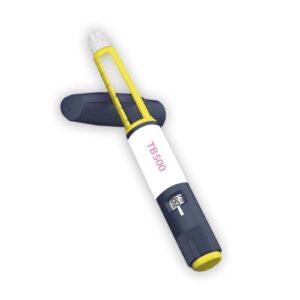 Blood flow is essential for healing injuries. Without proper circulation, the injured tissue doesn’t get enough oxygen or nutrients to repair itself.
Blood flow is essential for healing injuries. Without proper circulation, the injured tissue doesn’t get enough oxygen or nutrients to repair itself.
Peptides such as TB-500 can help improve blood flow by promoting angiogenesis, which is the formation of new blood vessels. More blood flow means more oxygen and nutrients reach the injured area, allowing the body to heal faster.
TB-500 has been particularly effective in improving blood circulation. By stimulating the growth of new blood vessels, this peptide ensures that your body can provide the injured area with what it needs for quick tissue repair.
This boost in blood flow helps clear away waste products, reduces swelling, and brings in the nutrients necessary for collagen production and tissue regeneration.
Once oxygen and nutrients are adequately delivered, structural repair becomes the priority, particularly through the synthesis of collagen.
Discover Thymosin Alpha 1 from Direct Peptides , an immune-modulating peptide that helps reduce inflammation and support faster injury recovery.
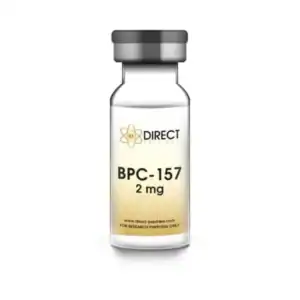 Collagen is a critical protein in the body that gives structure and support to tissues such as skin, tendons, ligaments, and muscles. After an injury, the body needs to produce collagen in large amounts to repair damaged tissue.
Collagen is a critical protein in the body that gives structure and support to tissues such as skin, tendons, ligaments, and muscles. After an injury, the body needs to produce collagen in large amounts to repair damaged tissue.
Peptides for healing injuries like BPC-157 and GHK-Cu play a key role in boosting collagen production. These are often categorized as injury recovery peptides due to their regenerative effects.
BPC-157 has been shown to stimulate collagen production, which is essential for repairing tendons, ligaments, and muscles. This peptide accelerates tissue regeneration, ensuring that the damaged area heals faster and stronger.
The new tissue formed is more resilient and durable, reducing the risk of re-injury. Understanding how BPC-157 heals soft tissue reveals why it’s favored in recovery protocols.
Similarly, GHK-Cu (Copper Peptide) has powerful effects on collagen synthesis. It not only boosts the production of collagen but also improves the quality of the newly formed tissue. This makes GHK-Cu a great option for anyone recovering from soft tissue injuries, as it helps regenerate healthier, stronger tissue.
By increasing collagen levels, peptides for healing injuries provide the necessary structural framework for the body to heal quickly and efficiently.
Among collagen-dependent tissues, tendons present unique challenges due to their density and poor blood supply.
Shop BPC-157 from Direct Peptides , a healing peptide known for boosting collagen production and enhancing the repair of tendons, ligaments, and muscles.
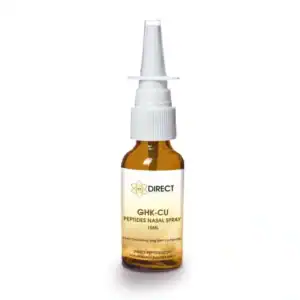 Tendon injuries, such as tears or strains, are notoriously slow to heal. Tendons are dense and have limited blood flow, which makes the healing process challenging. However, peptides for healing injuries like BPC-157 can speed up this process significantly.
Tendon injuries, such as tears or strains, are notoriously slow to heal. Tendons are dense and have limited blood flow, which makes the healing process challenging. However, peptides for healing injuries like BPC-157 can speed up this process significantly.
BPC-157 is one of the most effective peptides for tendon recovery. It works by improving collagen production, which is essential for rebuilding tendon fibers.
Additionally, BPC-157 helps reduce inflammation and improve blood circulation to the injured tendon. With better blood flow, the tendon receives more oxygen and nutrients, accelerating the healing process.
Studies have shown that BPC-157 can significantly reduce recovery time for tendon injuries. Whether it’s a mild strain or a more severe tear, this peptide helps the tendon heal faster, allowing for quicker return to activity.
The recovery of ligaments, which also suffer from limited vascularization, follows a similarly constrained trajectory.
Find GHK-Cu from Direct Peptides , a copper-binding peptide that supports skin and tissue regeneration through enhanced collagen synthesis and wound healing.
Ligament injuries, such as sprains or tears, are challenging to recover from because ligaments have low blood supply. This means they heal slowly and can lead to long periods of inactivity. However, peptides for healing injuries like TB-500 and BPC-157 have shown great promise in accelerating ligament healing.
TB-500 works by improving blood flow to the injured ligament and promoting collagen production. By enhancing circulation, more oxygen and nutrients are delivered to the site of injury, which helps heal the ligament faster.
Moreover, BPC-157 also stimulates collagen production and reduces inflammation, making it ideal for healing ligaments. Together, these peptides significantly reduce recovery time for ligament injuries, helping you get back to full function quicker.
In contrast to ligaments and tendons, muscle tissue is better supplied with blood but still benefits from accelerated recovery pathways.
Explore Peptide Supplies at Direct Peptides for all your reconstitution requirements.
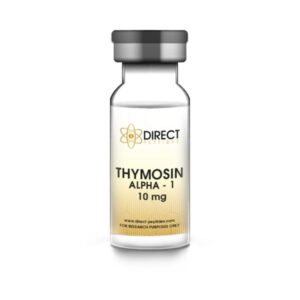 Muscle injuries, like strains or tears, are common, especially in athletes and active individuals. The recovery from muscle injuries often requires rest and rehabilitation, but peptides for healing injuries can accelerate this process.
Muscle injuries, like strains or tears, are common, especially in athletes and active individuals. The recovery from muscle injuries often requires rest and rehabilitation, but peptides for healing injuries can accelerate this process.
Many use these compounds specifically to accelerate healing with peptides that target muscle fibers directly.
BPC-157 and Thymosin Alpha 1 are two peptides that have been shown to promote muscle regeneration. BPC-157 helps repair muscle fibers by boosting collagen production, improving blood circulation, and reducing inflammation. These factors work together to repair the muscle tissue faster and more effectively.
Thymosin Alpha 1, on the other hand, helps by boosting the immune system, reducing inflammation, and enhancing tissue regeneration.
This peptide not only helps regenerate muscle tissue but also aids in reducing scarring, ensuring the muscle heals properly and without excess fibrous tissue.
By promoting faster muscle recovery, peptides for healing injuries allow individuals to return to physical activities more quickly and with less downtime.
Taken together, these peptides offer a synergistic effect. They address multiple layers of the healing process—from the immune response and circulation to structural repair and regeneration. The result is a more efficient recovery path.
Injury recovery can often feel like a long and frustrating process. But with the help of peptides for healing injuries, the healing process could be significantly accelerated. Peptides like BPC-157, Thymosin Alpha 1, TB-500, and GHK-Cu all offer unique benefits in promoting tissue repair, reducing inflammation, boosting collagen production, and improving blood circulation.
While these peptides are still under research and not yet approved for widespread clinical use, the results are promising. Whether you are recovering from a muscle strain, tendon tear, or ligament sprain, peptides for healing injuries can provide a faster and more efficient healing process. As research continues, these peptides could one day revolutionize the way we approach injury recovery.
Always consult with a healthcare professional before considering new treatments for injury recovery. The future of faster, more efficient healing may lie in the promising potential of these peptides for healing injuries.
[1] Malinda KM, Sidhu GS, Mani H, Banaudha K, Maheshwari RK, Goldstein AL, Kleinman HK. Thymosin beta4 accelerates wound healing. J Invest Dermatol. 1999 Sep;113(3):364-8.
[2] Chang CH, Tsai WC, Hsu YH, Pang JH. Pentadecapeptide BPC 157 enhances the growth hormone receptor expression in tendon fibroblasts. Molecules. 2014 Nov 19;19(11):19066-77.
[3] Gwyer D, Wragg NM, Wilson SL. Gastric pentadecapeptide body protection compound BPC 157 and its role in accelerating musculoskeletal soft tissue healing. Cell Tissue Res. 2019 Aug;377(2):153-159.
[4] Pickart L, Margolina A. Regenerative and Protective Actions of the GHK-Cu Peptide in the Light of the New Gene Data. Int J Mol Sci. 2018 Jul 7;19(7):1987.
[5] Malinda KM, Sidhu GS, Banaudha KK, Gaddipati JP, Maheshwari RK, Goldstein AL, Kleinman HK. Thymosin alpha 1 stimulates endothelial cell migration, angiogenesis, and wound healing. J Immunol. 1998 Jan 15;160(2):1001-6.
Explore ALL Peptide Vials from Direct Peptides today, your trusted supplier of premium clinical-grade peptides online.
Certain peptides may support post-surgical healing by promoting tissue regeneration, reducing inflammation, and improving blood flow to the surgical site. Faster collagen synthesis may strengthen repaired tissues, while improved circulation can help decrease swelling. While many people use peptides during post-surgery recovery, it’s essential to consult a healthcare professional before beginning any new therapy after surgery.
Peptides may help reduce the risk of future injuries by improving tissue quality, supporting collagen integrity, and promoting stronger, more resilient muscles, ligaments, and tendons. By enhancing circulation and reducing chronic inflammation, they may also help maintain healthier soft tissue. While promising, peptides should be combined with proper training, recovery habits, and medical guidance for best results.
Although peptides are most commonly discussed for soft-tissue repair, some, particularly BPC-157, have shown potential in early research to support nerve healing and reduce neuroinflammation. This may help alleviate nerve-related pain associated with injuries or overuse. While promising, peptide-based nerve support is still emerging, so it should complement, not replace, standard neurological treatment.
Certain peptides, especially GHK-Cu and BPC-157, may help reduce excessive scar tissue by supporting balanced collagen remodeling and improving blood flow to the healing area. This can encourage more flexible, functional tissue formation rather than dense, fibrotic scar tissue. While not a guaranteed outcome, many studies report improved mobility and smoother recovery when peptides are introduced early in the healing timeline.
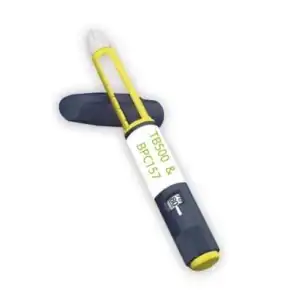
TB500 BPC157 20mg Pre Mixed Pen
£79.58 – £214.87Price range: £79.58 through £214.87 Select options This product has multiple variants. The options may be chosen on the product page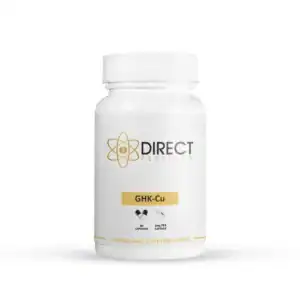
GHK-Cu Capsules
£63.33 Add to cart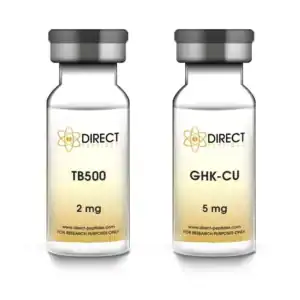
TB500 GHK-Cu Peptide Stack
£25.83 – £34.81Price range: £25.83 through £34.81 Select options This product has multiple variants. The options may be chosen on the product page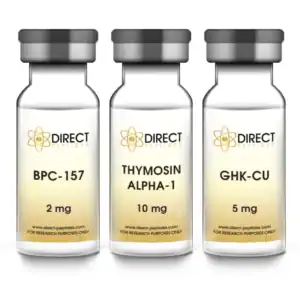
BPC-157 Thymosin Alpha-1 GHK-Cu Stack
ALL CONTENT AND PRODUCT INFORMATION AVAILABLE ON THIS WEBSITE IS FOR EDUCATIONAL PURPOSES ONLY.
DISCLAIMER: These products are intended solely as a research chemical only. This classification allows for their use only for research development and laboratory studies. The information available on our Direct Peptides website: https://direct-peptides.com is provided for educational purposes only. These products are not for human or animal use or consumption in any manner. Handling of these products should be limited to suitably qualified professionals. They are not to be classified as a drug, food, cosmetic, or medicinal product and must not be mislabelled or used as such.